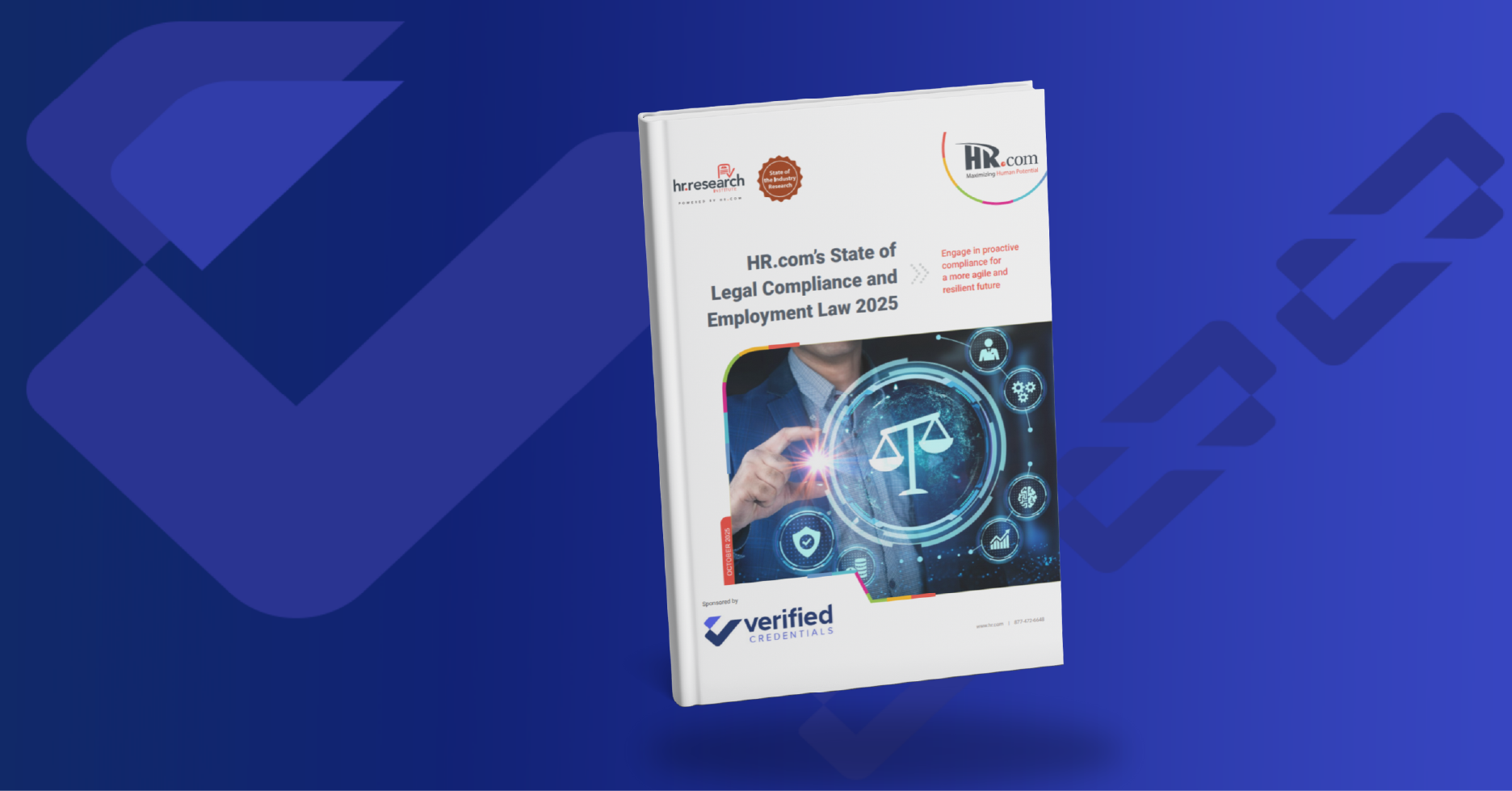Simplifying Employee and Candidate TB Testing
If you oversee Tuberculosis (TB)testing for current employees and candidates, you know how important it is to keep the process running smoothlyand...
With Verified Credentials' mobile-first candidate experience, you meet candidates where it's most convenient. Learn how easy we make it.
|
|
Now offering DOT services!Get your drivers on the road quickly and meet DOT regulations. |
Gain clarity about your compliance responsibilities with our new Adverse Action Guide! Use the interactive map to learn what regulations apply in your area.
Verified Credentials is a leading background screening company. Since 1984, we’ve helped validate and secure relationships through the use of our comprehensive screening solutions. We offer a wide variety of background checks, verifications, and innovative screening tools.

Our accreditation confirms that our policies, processes, and employee training meet rigorous industry compliance standards.
1 min read
Verified Credentials Sep 13, 2019 12:00:00 AM

The requirements and obligations of the Fair Credit Reporting Act (FCRA) can be challenging to navigate, even for the most seasoned employer. Any employer that uses a professional background screening company like Verified Credentials to get a background report (called a “Consumer Report” under the FCRA) on applicants or employees is likely subject to the FCRA.
One of the most confusing, and litigated, requirements for employers under the FCRA are the Disclosure and Authorization requirements. Per the FCRA, before obtaining a Consumer Report for employment purposes, the employer is supposed to:
The meaning of the terms clear and conspicuous are undefined in the FCRA – and have been the subject of many debates (and lawsuits!). What may be clear to an HR-professional may be undecipherable to the average applicant/employee. Likewise, whether a disclosure document consists solely of the disclosure has also been under a spotlight.
The Federal Trade Commission (FTC), one of the federal consumer protection agencies tasked with enforcing the FCRA, has never provided a sample Disclosure or Authorization form for employers to use. However, the agency has provided hints to help employers stay compliant with the FCRA. In an FTC blog post from April 2017, the agency provided some pointers on what not to put in a disclosure document:
For the full FTC blog-post, click here: Background Checks on Prospective Employees: Keep Required Disclosures Simple
Of course, this post is just intended to help you think critically about your obligations under the FCRA. You should always discuss your background screening program – and any forms, disclosures, authorizations or notices – with your legal counsel, to ensure you remain compliant with all laws related to background screening.

If you oversee Tuberculosis (TB)testing for current employees and candidates, you know how important it is to keep the process running smoothlyand...

Many industries rescreen their staff on a regular basis, whether annually or periodically. As organizations look to get 2026 off to a strong start,...

If you are involved in your team’s background screening and hiring process, you'reprobably familiar with the “7-year lookback rule” for criminal ...

Navigating compliance is a key concern for HR pros in any industry and keeping up with legislative changes while anticipating future developments is...

A lot has changed in the world since we started 2020. As we round out the first half of the year, we are looking back on changes we have seen in the...

1 min read
At Verified Credentials, we’re all about helping HR professionals thrive. One of the ways we do that is by showing up at HR industry events. These...